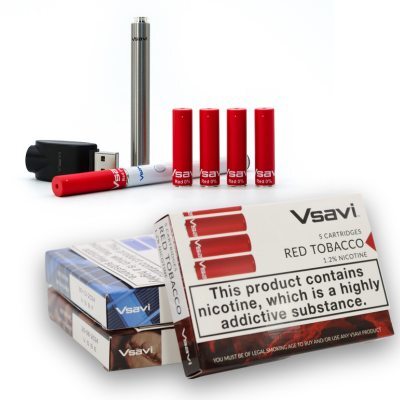Why Do People Vape?
28th Mar 2025

Gambling. Smoking. Drinking alcohol. There are many costly addictions people suffer from that are not only expensive but damaging to their physical and mental health. But who do people vape, when the long-term effects and risks are not yet known?
Currently, more than 1.3 billion people in a worldwide population of roughly 8 billion use tobacco products. Smoking tobacco products is a serious health risk, and for more than 20 years since its creation vapes have been seen as a tool to quit smoking.
So why has the UK government announced a ban on single-use disposable vapes like so many other countries worldwide? Do people vape as a cost-cutting measure, to follow a cultural trend or due to a deeper psychological issue? We aim to break down the reasons why people vape using scientific data and the latest research.
What are the Main Reasons for Vaping?
More than 5.6 million people now vape (53% ex-smokers) in the UK for a variety of reasons. Intended for adult smokers, vapes should help those who have struggled to quit cigarettes with other Nicotine Replacement Therapies (NRTs). Other reasons why people may vape include:
- A new trend to experiment with
- Cheaper than smoking cigarettes
- Marketing and advertising influence society
- Association with weight loss due to nicotine being an appetite suppressant
- Temporarily takes the mind away from mental health problems such as depression or low self-esteem (not advised)
- Interesting electronic devices and the variety of flavours available
Whether a smoker has tried to stop using cigarettes cold turkey or using aids such as nicotine patches, the addictive nature of cigarettes including the habit makes it very challenging to quit.
One study from Action on Smoking and Health (ASH) suggested it could take a smoker 30 attempts to quit smoking before they can stop permanently.
For a non-smoker of cigarettes, there should be no reason why you start vaping. The whole purpose of the nicotine-containing vape was to cut tobacco and the thousands of dangerous toxins out of the system but maintain the habit of nicotine.
And yet, the disposable vape ban was passed in UK Parliament, with a new law making it illegal for the sale of a non-rechargeable or refillable vape beyond the 1 June 2025. This is for two key reasons – to protect the environment and young people.

Why Do Young People Vape?
Before vaping, there were generations of people who decided to smoke from a young age. This Youth Smoking fact sheet produced by ASH highlights that in 1982, 11% of boys and girls aged 11-15 years old smoked.
Fast forward to 2023, and the study showed that this percentage is down to 1.2%. In the past 20 years we have seen that as the underage smoking habit has dropped, the percentage of young people vaping has increased.
Peer pressure is a powerful force in shaping teenage behaviour. The desire to fit in and be accepted by social groups can lead to young people following the influence and actions of friends or even parents.
In environments where vaping is common, seeing friends or acquaintances engage in vaping can normalise the behaviour, creating a flurry of activity by young people with an urge to vape. This social aspect highlights the need for effective educational campaigns and interventions to address peer pressure and inform young people about the potential risks of vaping.
Key Factors Behind Underage Vaping
A clinical study done in the USA back highlights a key reason for these trends over many decades – curiosity and availability. Based on data collected from over 4,000 students of different ages, 53% of self-reported young vapers claimed the reason they tried vaping was experimentation.
Another 37% said taste, with 23% stating boredom and 22% having a good time. The single-use disposable vape ban makes perfect sense. With illicit devices being sold on street corners for £1 or £2 are now no longer affordable to young vapers who have never smoked.
From 1 June 2025 onwards in the UK, young people will have much less accessibility to purchase vapes. The UK government is contemplating imposing further laws that could restrict fruit flavours and tempting packaging which was previously aimed at the youth of society, with bright colours and animations.
While this is a good incentive to curb youth vaping, it may be at the cost of adult smokers who need flavours other than tobacco or menthol to quit cigarettes successfully.

Is Vaping a Safer Alternative?
Chinese pharmacist Hon Lik changed the lives of millions, inspired by the personal tragedy of losing his father to smoking-related lung cancer, by inventing the first vape.
His design focused on delivering nicotine through vapour without the harm of combustible tobacco.
Unlike traditional cigarettes, which involve burning tobacco and inhaling thousands of unknown and dangerous chemicals, e-cigarettes heat a liquid solution to create an aerosol.
This distinction eliminates the combustion process, significantly reducing exposure to tar and many toxic substances associated with smoking, appealing to health-conscious consumers and those seeking harm reduction.
Is an Addiction to Nicotine a Key Reason?
Nicotine remains a central part of the reason many switch from smoking to vaping, hoping to maintain that daily habit. It contributes to its appeal and potential drawbacks. For former smokers, vaping provides a means to satisfy nicotine cravings without the harmful effects of smoking.
E-liquids offer a range of nicotine strengths, allowing users to tailor their intake with a greater sense of control. However, the addictive nature of nicotine poses risks, particularly for non-smokers who might develop a dependency, raising public health concerns about the long-term implications of widespread vaping.
We cannot stress enough at V2 Cigs UK that these types of products are only intended for people who have tried other means such as NRTs to quit smoking and found it too difficult to maintain without cigarettes. Vaping acts as an alternative but should not be something to experiment with or try if you have never smoked.
Does Vaping Increase Anxiety?
Understanding the reasons and motivations for people wanting to vape is a complex issue. It is not just about looking cool or doing what others do but can involve factors such as finances, personal health and human behaviour. All these factors are potential triggers and common causes of anxiety.
Some studies suggest that nicotine, a central component of many vapes (although you can purchase nicotine-free vapes and e-liquids), can increase anxiety. Despite the popular myth that people smoke or vape to calm down, this side effect is only temporary. The addictive nature of nicotine once you stop triggers the urgency for more, which leads to anxiety and stress.
More research is needed to determine the extent to which vaping impacts anxiety levels and mental health. However, early signs show it can have a similar effect as cigarettes do in terms of addiction.
Nicotine is known to influence mood and anxiety levels, with the full effect varying between individuals based on how much they vape in strength and frequency.
For some individuals, vaping serves as a coping mechanism for stress and anxiety. The ritual of vaping and the act of inhalation can have a calming effect, providing temporary relief from stressful situations. This self-medication approach, however, is not healthy or recommended by health professionals.

Conclusion
Understanding why people vape requires examining a range of factors, from the pursuit of harm reduction and smoking cessation to the influence of social trends and peer dynamics.
While vaping offers potential benefits as a smoking alternative, it also presents challenges, particularly in terms of youth access and nicotine addiction, hence the disposable vape ban.
As we navigate this evolving landscape, the insights gained from understanding why people vape can inform future developments in both public health and consumer behaviour.
Further medical research needs to be carried out by health professionals to understand the risks of vaping for those who do not smoke. For now, vaping has acted as an alternative path to help four million UK smokers quit. If you have any questions or concerns about vaping, feel free to contact us for further information. While we may not be health professionals, we can try to point you in the right direction.
